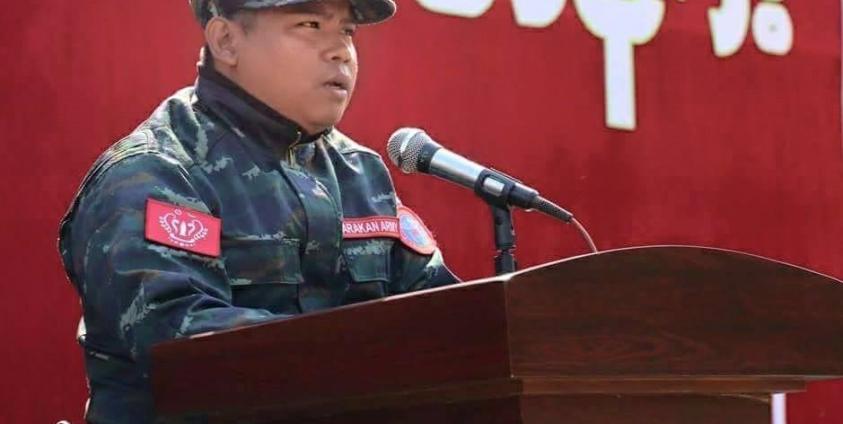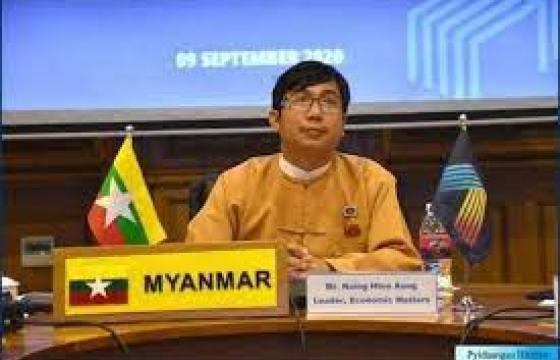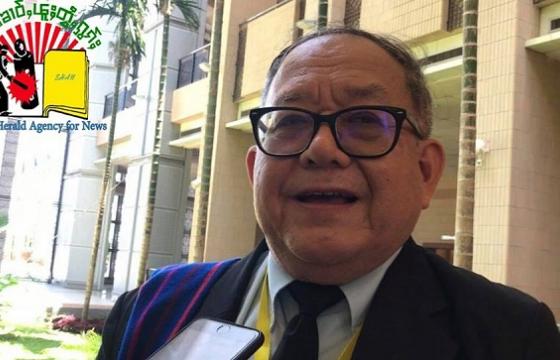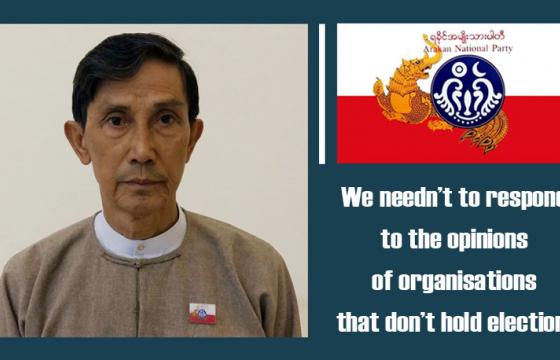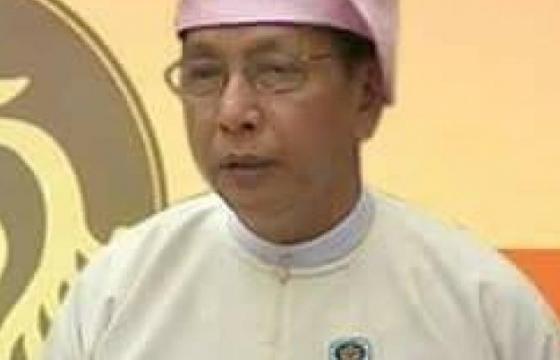The Arakan Army was established in April 2009, declaring its mission as safeguarding the Rakhine (Arakan) peoples right to self-determination, and protecting the cultural heritage and identity of the Rakhine ethnicity. The Arakan Army (AA) is one of the four members of the Northern Alliance – a coalition that emerged in November 2016 during a joint offensive against the Tatmadaw in Muse township. The alliance, which consists of the Ta’ang National Liberation Army (TNLA), the Myanmar National Democratic Alliance Army (MNDAA), the Kachin Independence Army (KIA) and the Arakan Army (AA), has continued carrying out coordinated attacks on Tatmadaw and government outposts in northern Shan State. The alliance has lobbied for both the United Wa State Army (UWSA) and China to be given observer status in the peace process. None of the four factions of the Northern Alliance have signed the nationwide ceasefire agreement (NCA).
Freelance reporter Min Tayza Aung interviewed Brigadier General Nyo Tun Aung, deputy chief of staff of the Arakan Army, earlier this month for the Mon News Agency. This interview has been edited for clarity and length.
Q: The Arakan Army celebrates its eighth anniversary on April 10. How do you plan to commemorate this day?
A: We don’t plan to hold any big celebrations this year. We will only issue a formal message from the Arakan Army commander-in-chief and hold Arakan Army Day celebrations in respective military areas with local and overseas ULA [United League of Arakan] members. In some places, we will broadcast a speech. A football competition was held near Laiza area recently to mark the 8th anniversary of the Arakan Army. We plan to hold a grand celebration on the 10th anniversary in 2019.
Q: What has the Arakan Army achieved over the past eight years? What are your plans going forward?
A: The Arakan Army’s greatest achievement has been to receive the support, trust and hopes of nearly all Arakan people. Also, other ethnic armed organizations respect the Arakan Army and big countries, including China, know the leaders of the Arakan Army and our political aims. You can say this is the success of the ULA/AA.
We didn’t reach this stage within just a day. It wasn’t the effort of a single person. We have reached this point after sacrifices of blood, sweat and lives. We haven’t gotten anything for free and we have faced tons of challenges, difficulties and obstacles, as well as opposition everywhere and at every stage. We have been able to succeed so far because we have continuously strived hard in unity.
But we shouldn’t feel content with this current situation. We can only say that we have reached our goal of after the Rakhita (Arakan) directive and Arakan dream, which were set down by the United League of Arakan (ULA), has been achieved. We haven’t reached that goal yet, but it’s not as far away as it was in the past.
Q: The UNFC [the United Nationalities Federal Council, an ethnic umbrella organization] has encouraged members of the Northern Alliance, including the Arakan Army, to take part in the nationwide ceasefire agreement (NCA). Why have you decided to deviate from the NCA and support the UWSA’s plan to establish a new peace process instead?
A: We have been driven into this situation because of the political swindling and dishonesty of the previous government, as well as the political restrictions of the current government format. The continuous chauvinism and offensives by the Burmese Military is aimed at annihilating ethnic armed organizations [through] military pressure, neglecting equality and allying with some ethnic armed organization while fighting with others. The continuous focus on the six-point peace policy is a problem.
Q: The Northern Alliance and the Peace Commission are negotiating some terminology, like “armed struggle” versus “armed conflict”. Are there any plans to move towards the NCA peace process after this terminology debate is resolved?
A: We, the Northern Alliance, plan to meet with the Peace Commission led by U Tin Myo Win in a couple of days under arrangements made by the People’s Republic of China. The Peace Commission offered to meet us through the People’s Republic of China (Yunnan Province route). The date has already been set and we have already decided to attend the meeting. We need to wait and see what will happen at the meeting.
[Editor’s note, although this meeting was planned before Thingyan, it has not occurred]
Translated by Thida Linn
Edited by Laignee Barron

